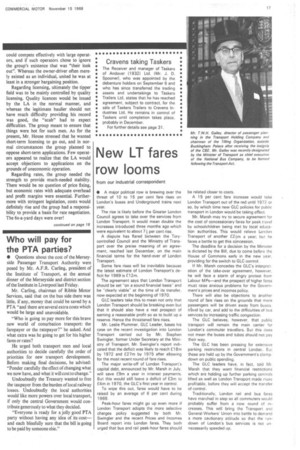Who will pay for the PTA parties?
Page 19

If you've noticed an error in this article please click here to report it so we can fix it.
• Questions about the cost of the Merseyside Passenger Transport Authority were posed by Mr. A.F.R. Carling, president of the Institute of Transport, at the annual dinner of the Merseyside and district section of the Institute in Liverpool last Friday.
Mr. Carling, chairman of Ribble Motor Services, said that on the bus side there was little, if any, money that could be saved by a PTA "and there are several extra costs which would be large and unavoidable.
"Who is going to pay more for this brave new world of conurbation transport: the farepayer or the ratepayer?" he asked. And what extra was he going to get for his higher fares or rates?
He urged both transport men and local authorities to decide carefully the order of priorities for new transport development. Before making final decisions, he advised: "Ponder carefully the effect of changing what we now have, and what it will cost to change."
Undoubtedly the Treasury wanted to free the taxpayer from the burden of local railway losses. Undoubtedly the local authorities would like more powers over local transport, if only the central Government would contribute generously to what they decided.
"Everyone is ready for a jolly good PTA party without having any idea of its cost— and each blissfully sure that the bill is going to be paid by someone elk."




















































































































